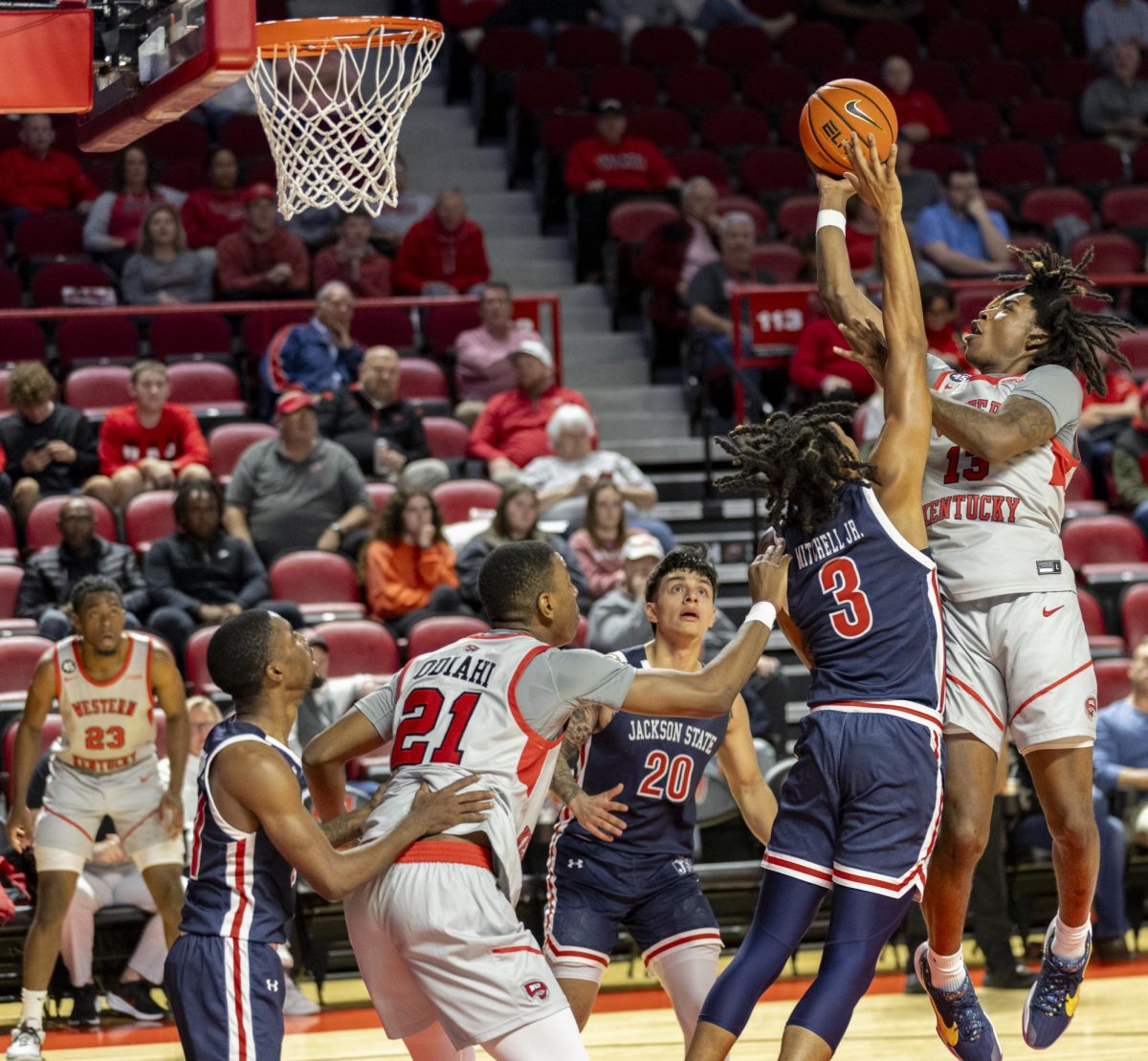‘Mama’ isn’t revolutionary, but it’s well-constructed
February 5, 2013
First-time director Andres Muschietti has fun mixing the old and new in “Mama.”
The plot of “Mama” is about as flimsy as most horror movies nowadays. It revolves around two young girls, Victoria (Megan Charpentier) and Lillian (Isabelle Nélisse), who disappeared into the wilderness after their father Jeffrey (Nikolaj Coster-Waldau of TV’s “Game of Thrones”) killed their mother and literally went off the deep end.
While in the wild, the two were raised by a creature of sorts, a being referred to only as “Mama” (hence the movie’s title). They transform into fully-fledged feral quadrupeds.
The girls soon move in with their uncle Lucas (Coster-Waldau pulls double-duty and cuts costs as both Jeffrey and Lucas) and his punkish and plucky girlfriend Annabel, played by the ubiquitous Jessica Chastain (“The Help,” “Zero Dark Thirty”) in full-on Goth makeup.
As Lucas and Annabel rehabilitate the girls, it becomes obvious that something more sinister than normal adolescence is afoot. Someone or something else moved in with Victoria and Lilly, and whatever it is starts to wreak some classic horror movie havoc.
Muschietti utilizes all of the basic horror movie tropes: fake outs, a soft-then-loud soundtrack and jumps. But where “Mama” succeeds is in the scenes where he dares to be original.
The film establishes the character of Mama as both a spiritual and physical presence — there’s never any question of whether or not this is all “real” — she’s definitely there. While the characters may not know it, the viewers do.
Muschietti has fun with this, using creative tricks to show us what’s going on: we see Mama reflected in the lenses of Victoria’s glasses, we hear her play with Lilly off-screen, just out of sight of Annabel.
A wickedly enjoyable sense of dramatic irony hangs over the entire film, because we know what’s going on when most of the characters don’t.
While it’s no “Rosemary’s Baby,” it has the similar effect of making us laugh at how terrible things are for the characters: they never seem to know how far deep they’re in, even when we do. And the needed scares are still delivered.
It’s this innovative fun and purposeful irony that keeps “Mama” fresh, even when some of its plot points become murky.
Also on Muschietti’s side is the reliable Chastain, playing against type here. Many actresses embarrass themselves when they make horror movies like “Mama,” but Chastain keeps her cool. Her chameleonic nature and genuine acting chops will keep her employed for a very long time.
“Mama” is based on Muschietti’s earlier short film of the same name, but here it is expanded into a full-length feature, with the help of producer Guillermo del Toro (the darkly beautiful “Pan’s Labyrinth”). Del Toro’s influence is obvious here, but Muschietti also succeeds on the strength of his own abilities.
Rather than letting the pressure of large-scale filmmaking go to his head, Muschietti purposely keeps the film small and sensible: most of the movie is just Chastain’s character Annabel interacting with the two young girls, and tertiary characters are thankfully kept to a minimum.
Muschietti is also cinematically adept: this is a good-looking movie. Even when Muschietti uses other movie’s old tricks, he frames them in his own way and keeps them somewhat fresh.
Is this the pinnacle of horror filmmaking? Nope. But it is a remarkably sound and smart debut picture that delivers on its promises. And it even provides a few laughs along the way.
I’m interested to see what Muschietti does next. He has the makings of a very talented director.











